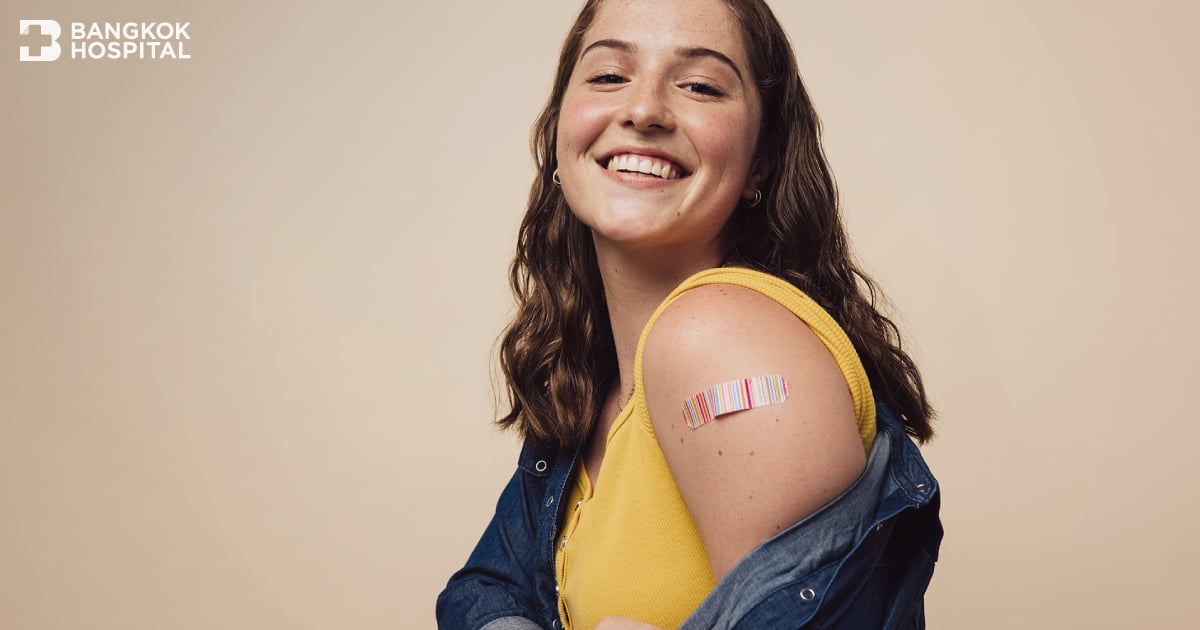According to a number of medical studies, COVID-19 vaccines have been proven to be effective at minimizing the risk of getting COVID-19 infections. Among different vaccine types, they do not only aim to reduce the chance of infection, but COVID-19 vaccines also help to mitigate disease severity in case a person becomes infected. Although vaccines appear to be acknowledged worldwide due to their efficacy, people who have been fully vaccinated against COVID-19 should abide by all precautions and preventive measures. To remain safe without panic or anxiety, it is essential to have a better understanding about general instructions prior to and after COVID-19 vaccination.
Instructions before vaccination
- On the vaccination day, if high fever is present, it is highly recommended to reschedule vaccine administration. In case of low-grade fever, vaccination can be considered as planned. Talk to your healthcare providers, if abnormal sign shows up before vaccination takes place.
- For patients with certain underlying diseases, e.g. respiratory diseases and immunocompromised conditions, talk to your healthcare providers and seek special advices before vaccination.
Possible side effects after vaccination
Side effects that develop after vaccine administration strongly indicate that our immune system is activated for building up the immunity against COVID-19. However, these undesired effects are usually mild and self-limiting. These include:
- Low-grade fever
- Headache
- Body ache or muscle pain
- Fatigue
- Pain, redness or swelling at the injection site
Allergic reactions
Vaccine allergy is induced by the immune system that overreacts to the administered vaccine. Immune response becomes excessively produced, resulting in a wide range of adverse reactions affecting different parts of the body. Besides direct impact of COVID-19 vaccine, allergic reactions can be triggered by mental conditions, e.g. unmanaged stress, fears and anxiety. Nevertheless, vaccine-related allergic reactions are typically rare.
Vaccine allergic reactions that might develop within 30 minutes after vaccination are as follows:
- Skin rash
- Urticaria or hives
- Swelling or itching at the face, lip and neck
- Breathing difficulties
- Low blood pressure
- Nausea
- Abdominal pain
Instructions after vaccination
Post-vaccination instructions include:
- If low-grade fever or headache develops, antipyretic and pain killer drugs can be taken as advised.
- Immediate medical assistance must be sought if skin rash, urticaria, high-grade fever, dizziness or weakness of the arm or leg exhibits,
- All preventive measures must be strictly complied with, including wearing a face mask, frequent handwash with soap or hand sanitizer and maintain social distance at all times while in public.
- After vaccination, self-isolation for at least 14 days is required if you have visited high-risk areas or exposed to suspected or confirmed cases.
- Vaccine administration must be completed, based on vaccine types.
In addition, it is highly recommended that patients who got COVID-19 infection with a full recovery should be still vaccinated since we do not yet know how long these people are protected from getting sick again after recovering from COVID-19. Even if people have already recovered from COVID-19, it is possible, although rare, that they could be infected with COVID-19 again. Nevertheless, COVID-19 vaccination can be considered in patients with COVID-19 at least 3 months after they have recovered from the disease. Expert opinion should be obtained prior to vaccination.
Reference lists:
https://www.thaihealth.or.th/Books/714/คู่มือ+วัคซีนสู้โควิด+(ฉบับประชาชน).html
https://ddc.moph.go.th/vaccine-covid19/

